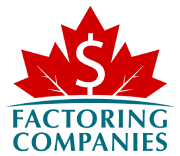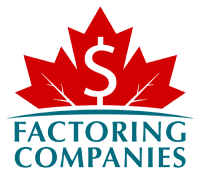
The global factoring industry has recently experienced an unprecedented year-on-year growth, with an 18 percent increase, FCI reports. This remarkable surge underlines a heightened demand for factoring advances, drawing attention to the intricate mechanisms determining these financial lifelines’ size. But what exactly influences the calculation of factoring advances, and why does it matter for businesses seeking this form of financing?
What is a Factoring Advance?

Factoring transforms your outstanding invoices into cash quickly. Before delving into the specifics, it’s crucial to understand what factoring advances are and how they can be a pivotal financial tool for businesses.
Factoring Advance: Definition and Basics
Your initial payment from your factoring company, also known as a “factoring advance,” is provided immediately after invoice submission. This instant liquidity is crucial, especially when traditional financing avenues may not be viable.
Key Characteristics of a Factoring Advance
Factoring is a unique form of funding, so advances have characteristics that aren’t found through traditional financing.
- Immediate Access to Capital: Unlike traditional loans, factoring advances provide swift access to cash, often within 24 to 48 hours.
- Creditworthiness Based on Clients: The focus is on the creditworthiness of your clients, not your business, making it an accessible option for newer companies with strong customers.
- Flexible Financing Option: The amount of financing can grow with your sales, providing scalability that traditional loans cannot offer.
Purpose and Significance of a Factoring Advance
Factoring advances provide more than just immediate cash flow solutions; they play a crucial role in the broader financial management strategy for businesses.
The Role of Factoring Advance in Cash Flow Management
Factoring advances streamline cash flow, enabling businesses to cover operational costs and seize growth opportunities without the wait for invoice settlements. This flexibility ensures that businesses can maintain continuity and stability even during tight financial periods.
How Factoring Advances Benefit Businesses
Beyond aiding cash flow, factoring advances offer businesses the leverage to negotiate better terms with suppliers, take advantage of early payment discounts, and respond quickly to market opportunities. This financial tool not only aids in immediate liquidity needs but also supports long-term strategic planning and development.
How Do Factoring Companies Determine the Advance Rate?
Understanding the factors that influence the calculation of advance rates by factoring companies is crucial for businesses looking to leverage this financing option.
Factors Influencing the Factoring Advance Rate
Several variables come into play when a factoring company determines the advance rate for an invoice. These include:
- Client Creditworthiness: The more creditworthy your clients are, the greater your advances are likely to be.
- Invoice Value, Volume, and Concentration: Lower risk typically equates to greater advances.
- Your Industry: Because risk and payment terms typically vary by industry, some industries, such as trucking and staffing, will often receive higher advances.
- Relationship: Factors sometimes offer greater advances to businesses they have a strong established relationship with.
Each of these factors helps the factoring company assess the risk involved in providing an advance, which in turn influences the rate offered.
Calculating the Advance Rate: A Detailed Overview
The advance rate is typically a percentage of the invoice’s value, ranging from 60 to 95 percent. This rate is calculated based on a risk assessment that includes evaluating the debtor’s credit history, the invoice’s age, and the likelihood of timely payment. The specific calculation method can vary between factoring companies, but understanding these general principles can help businesses anticipate the advance they might receive.
The Pros and Cons of Factoring Advances
Factoring advances offer critical benefits but also come with considerations that businesses must weigh carefully.
Advantages of Factoring Advances
- Immediate Cash Flow Improvement: Factoring provides immediate access to funds, improving cash flow and enabling businesses to meet operational demands without delay.
- No Additional Debt: Unlike loans, factoring does not create debt on the balance sheet, helping businesses maintain healthier financial ratios.
- Credit Management Support: Factoring companies often offer credit management services, reducing the burden on businesses to manage and collect their receivables.
Potential Downsides of Factoring Advances
- Costs: As with any type of business funding, there is a cost associated with invoice factoring. Businesses can minimize these by working with a factor that offers competitive rates and factoring only as needed.
- Dependency: Factoring doesn’t address underlying cash flow issues. It’s important to evaluate your business financials to understand the root cause of any working capital shortfalls and address them.
- Customer Interactions: Since the factoring company collects directly from clients, businesses have less control over the customer experience during the collection process. However, factors typically offer excellent customer service and direct any client concerns to your team.
Factoring Advance in Different Industries
The application and benefits of factoring advances can vary significantly across different sectors. Each industry faces unique challenges and opportunities, influencing how factoring is utilized. For instance, oil and gas factoring provides essential working capital to oilfield service companies, helping them cover payroll, equipment costs, and operational expenses while waiting on long payment cycles from major energy firms.
Industries like transportation often benefit from tailored factoring solutions, such as fuel discount cards, which provide additional cost-saving opportunities while improving cash flow. These cards can be particularly beneficial in managing operational expenses and ensuring smooth day-to-day operations, making them a valuable resource for businesses reliant on efficient logistics. Similarly, construction factoring helps contractors and subcontractors overcome slow payment cycles by providing immediate access to working capital, allowing them to pay for materials, labor, and equipment without delays.
Assessing Your Business’s Need for a Factoring Advance
Businesses should evaluate their cash flow cycles, client payment behaviors, and the seasonality of their operations. Industries with long invoice payment terms or those that experience significant fluctuations in demand may find factoring especially beneficial.
Choosing the Right Factoring Partner for Your Advance
Selecting a factoring company that understands your industry can be crucial. Look for partners with experience in your sector, as they can offer tailored advice and services. Consider their fee structure, the flexibility of their factoring arrangements, and their reputation for customer service.

Request a Complimentary Factoring Rate Quote
Factoring provides a flexible, debt-free financing solution tailored to the unique needs of various industries. Unlock the potential to transform your outstanding invoices into immediate working capital and fuel your business’s future success by requesting a complimentary factoring rate quote.

About Factoring Companies Canada
Related Articles
Get an instant factoring estimate
Factoring results estimation is based on the total dollar value of your invoices.
The actual rates may differ.
CLAIM YOUR FREE FACTORING QUOTE TODAY!
PREFER TO TALK?
You can reach us at
1-866-477-1778
Get an instant factoring estimate
Factoring results estimation is based on the total dollar value of your invoices.
The actual rates may differ.
CLAIM YOUR FREE FACTORING QUOTE TODAY!
PREFER TO TALK? You can reach us at 1-866-477-1778









